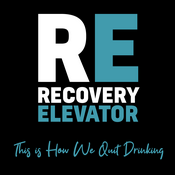1035 episódios
- In this week’s episode, we challenge long-held medical narratives, starting with how the healthcare system manages life after a cancer diagnosis. While medical advancements mean more people are surviving cancer than ever before, many patients report a "cliff-edge" experience where coordinated care effectively vanishes once primary treatment ends. We are joined by Dr. Rosalind Adam, an Academic GP at the University of Aberdeen, who argues that it is time to stop viewing cancer as a discrete, one-off episode and instead integrate it into routine chronic disease management.
Next, we dive into a landmark study from Sweden that is overturning the conventional notion of autism as a predominantly male condition. Historically, autism has been cited as having a 4:1 male-to-female ratio, but new data suggests this gap may be a byproduct of timing rather than biology. We speak with Dr. Caroline Fyfe, a medical epidemiologist at the University of Edinburgh, and Dr. Natasha Marrus, a child psychiatrist at Washington University in St. Louis. They discuss their analysis of 2.7 million individuals, which revealed a significant female catch-up during adolescence, showing that by age 20, the diagnosis ratio approaches 1:1. The team explores why girls are so often missed in childhood and what this shift means for the future of sex-sensitive diagnostic practices.
Reading List
For more details on the research discussed in this episode, you can access the full papers on bmj.com:
Cancer is a chronic disease: why don’t we treat it as one? Adam R, Hogg DR, Ritchie LD, Nekhlyudov L. BMJ 2026;392:e086624.
Time trends in the male to female ratio for autism incidence: population based, prospectively collected, birth cohort study. Fyfe C, et al. BMJ 2026;392:e084164.
Please subscribe to the Medicine & Science podcast on your favourite platform to get the latest episodes. If you enjoy our podcast, you can leave us a review or a comment on Apple Podcasts, Spotify, or YouTube. "We see coercion the other way... People cannot let go of their dying family" - assisted dying around the world
14/2/2026 | 46minThe House of Lord's amendments to England and Wales assisted dying bill might be causing a constitutional crisis. Lords have tabled 1,277 amendments—which is a record for any equivalent bill in history - and over half of those came from just seven peers.
This has led to accusations of "delaying tactics" or "filibustering" to run down the clock deliberately and run this bill off the road. Although some of these amendments have been described as unworkable, repetitious and unnecessary; others reflect serious, legitimate concerns, around the prevention of coercion, how to identify victims of domestic abuse and the broader impact on the disabled community, and whether it’s wise to introduce assisted dying while palliative and social care services are so stretched.
300 territories around the world, allow physician assisted death - so we asked experts from Canada and California to reflect on those objections, and if there is any evidence of this issues arising where they live.
James Downer is Professor and Head of the Division of Palliative Care at the University of Ottawa, and Catherine Forest is clinical associate professor of family medicine at the University of California San Francisco.
Reading list:
Scrutiny of the assisted dying bill is vital but obstruction in the House of Lords could mean it never becomes law- Deborah Cohen's new book "How the internet hijacked our health" explores the profound impact of the internet on our wellbeing.
In this conversation with BMJ Editor, Kamran Abbasi, they discuss the ways in which online information can both empower and mislead, the role of big tech in shaping our wellbeing and the complex and disturbing ways wellness influencers are becoming more trusted than the NHS.
With insights drawn from extensive research and a deep understanding of the digital landscape, Deborah Cohen sheds light on the critical issues at the intersection of technology and healthcare, and challenges anyone who consumes health information online to think differently about what they're doing. - We’re 18 months into the Labour government, and their changes to the NHS are beginning to be felt. In the 10 year plan that they launched last year, they announced three planned shifts for the health service.
Firstly, they pledge to move care from hospitals to the community, an increased focus on prevention rather than sickness, and shift from analogue to digital with an improved NHS app where patients can access records, seek advice and control some aspects of their care. However, accessing primary care and getting a GP appointment is still a key area of concern for patients and healthcare staff.
In a new research paper on bmj.com, a group of researchers have performed a qualitative study asking 70 patients about their experiences of accessing primary care in England. We're joined by Hugh Alderwick and Luisa Petigrew from the Health Foundation to discuss what the findings mean for the 10 year plan.
Also this week, online gambling is a growing problem. The immediacy of access, combined with advertising and push notifications, and a proliferation of new gambling companies, undermines traditional ways of managing a gambling addiction.
A new analysis argues that these new forms of online gambling requires new forms of regulation. Spencer Murch from the University of Calgery offers some ideas on how that could work.
Reading list
Experience of access to general practice in England
Policies to increase access to general practice may have unintended consequences
Online gambling requires greater government regulation - This interview is available in video form: https://www.youtube.com/watch?v=-yNO47EfuEM
@RichardJMurphy, political economist and tax campaigner, joins Kamran Abbasi, Editor in Chief of The BMJ.
In the UK an ongoing dispute between resident doctors and the Labour Government saw doctors go on strike in mid-December. With Winter pressure piling on and cost-of-living on the rise, do doctors have a credible case of pay rises? And more broadly, how can the economic situation of the NHS be improved?
00:00 Introduction
01:30 Doctor Pay Claims
04:33 Inflation Measures
07:29 Affordability Crisis
09:48 Market Forces Arguments
12:52 NHS Affordability
15:00 Youth Unemployment
19:14 Political Priorities
23:10 Neoliberal Capitalism
27:35 Mixed Economy Alternative
32:32 Prescription for NHS
Mais podcasts de Saúde e fitness
Podcasts em tendência em Saúde e fitness
Sobre Medicine and Science from The BMJ
The BMJ brings you interviews with the people who are shaping medicine and science around the world.
Site de podcastOuça Medicine and Science from The BMJ, Tati B. e Dunker no UOL e muitos outros podcasts de todo o mundo com o aplicativo o radio.net

Obtenha o aplicativo gratuito radio.net
- Guardar rádios e podcasts favoritos
- Transmissão via Wi-Fi ou Bluetooth
- Carplay & Android Audo compatìvel
- E ainda mais funções
Obtenha o aplicativo gratuito radio.net
- Guardar rádios e podcasts favoritos
- Transmissão via Wi-Fi ou Bluetooth
- Carplay & Android Audo compatìvel
- E ainda mais funções


Medicine and Science from The BMJ
Leia o código,
baixe o aplicativo,
ouça.
baixe o aplicativo,
ouça.











































